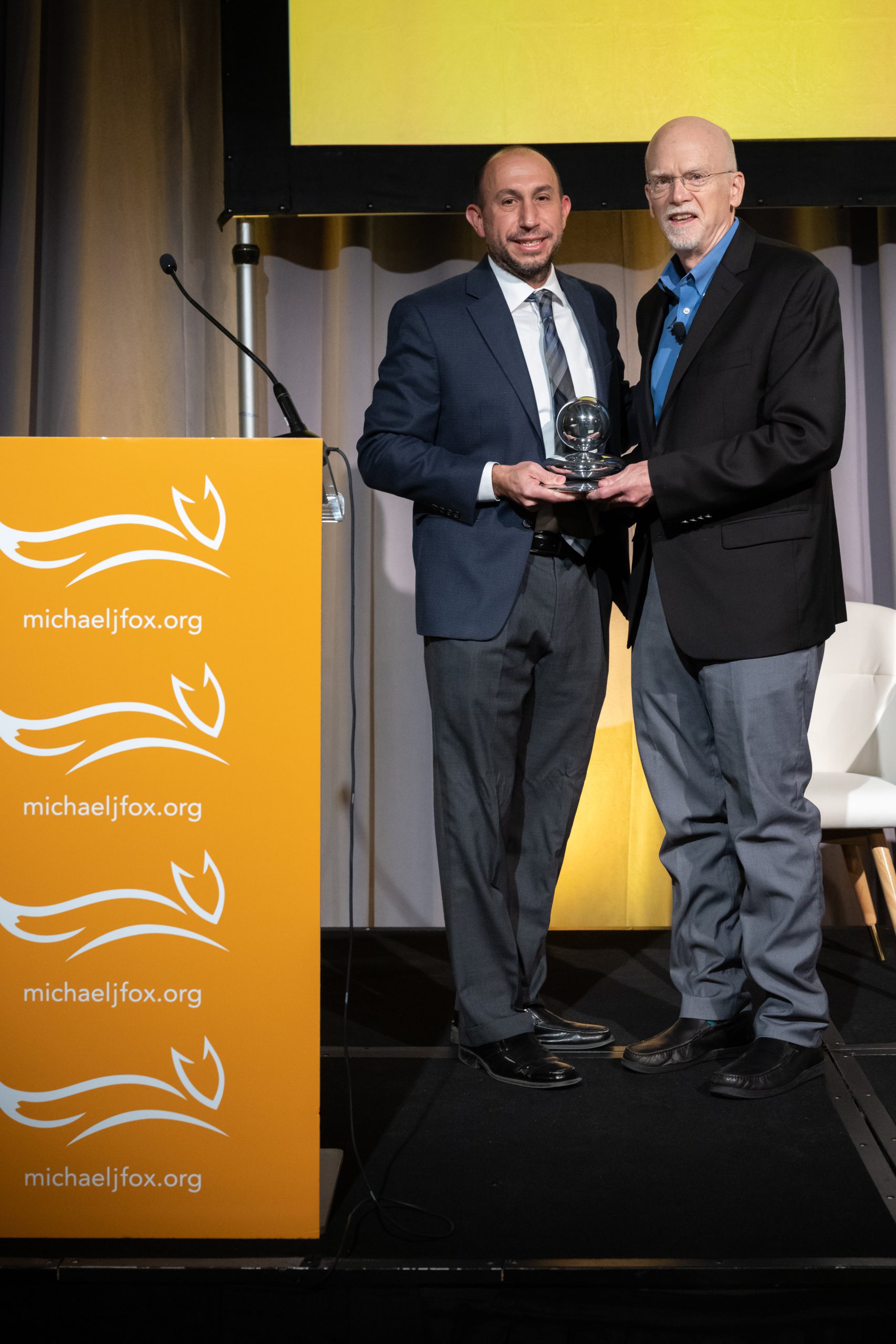The Michael J. Fox Foundation for Parkinson’s Research (MJFF) has awarded the 2022 Robert A. Pritzker Prize for Leadership in Parkinson’s Research to J. Timothy Greenamyre, M.D., Ph.D., vice chair of neurology at the University of Pittsburgh School of Medicine and director at the Pittsburgh Institute for Neurodegenerative Diseases. The prize recognizes researchers who have dedicated their professional lives to researching treatments for Parkinson’s patients.
“This prize has recognized, annually, some of the most amazing Parkinson’s scientists around the world. To be among those who have been honored is humbling,” said Greenamyre. “My relationship with my patients is what motivates me. Working with these families over many years and seeing the impact of the disease drive my dedication to identify causal factors and biological contributors toward therapies and policies to stop Parkinson’s. To have those efforts recognized with this prize is an honor.”

Dr. Todd Sherer presenting Dr. J. Timothy Greenamyre with the Pritzker Prize
Greenamyre, who joined Pitt and UPMC in 2004, said he values the breadth and depth of the neuroscience community in Pittsburgh, where researchers are highly collaborative and do not put up barriers. He strongly believes in preparing the next generation of scientists and continues to balance treating patients with teaching and research.
Todd Sherer, Ph.D., executive vice president, research strategy of the MJFF, presented the prize to Greenamyre at the foundation’s Research Roundtable event in New York City on Oct. 29. Sherer was also one of Greenamyre’s mentees during their time at Emory University.
“Dr. Greenamyre stands out for his expansive research in Parkinson’s disease, especially on the intersection of genetics and environment,” said Sherer. “This science has and will continue to resonate through the field. Beyond that, there’s a broad network of people whom he has mentored and who are continuing to make significant impact in Parkinson’s. He always treated that group as a family and empowered them to make meaningful progress in the field.”
Greenamyre’s work helped provide evidence that pesticides like rotenone and paraquat contribute to the disease. His work in developing a rotenone model continues to have far-reaching impacts on the field, enabling the work of other researchers studying causes and treatments of Parkinson’s disease.
Research on cell biological pathways also stands out among his efforts, particularly the role of mitochondria in Parkinson’s disease. Mitochondria are the energy producers within cells, and evidence — including from Greenamyre’s research — suggests that their function could go awry in Parkinson’s.
Together, Greenamyre’s research informs preventative efforts to ban potential causes of Parkinson’s disease, while also suggesting potential targets for treatments.
“The prize funds from the Pritzker award will go straight into research; we already have someone we’re planning to hire to work on our Parkinson’s project,” said Greenamyre.








